
Approximately one third of all food produced globally is lost or wasted. Coping with this loss represents an opportunity to achieve a triple benefit: for the climate, for food security and the sustainability of our agri-food systems.
The generation and waste of food surpluses is a problem that originates in different spheres and socioeconomic sectors (primary sector, industry, commerce, restaurants, homes,…), which demonstrates the need to address the problem from a global perspective and transversal, with the involvement of the different agents.
Remenja’mmm aims to value food, making this problem visible and raising awareness among all actors in the food chain to prevent waste. Ultimately channeling the surpluses that could not be avoided through a Food Bridge with social entities.
The proposal, which was born in Catalonia in 2015 and in 2022 extends to the Balearic Islands, proposes actions to prevent food waste and channel surpluses aimed at different actors in the food chain:
-Local administrations: preparation of municipal prevention campaigns.
-Citizenship: awareness campaigns to value food
-Hospitals: diagnosis, waste prevention and surplus channeling Food (Food Bridge)
-HORECA Sector: prevention of waste, use of food and awareness (Remenja’mmm)
-Commercial sector: promotion of the channeling of food surpluses (Pont Alimentari)
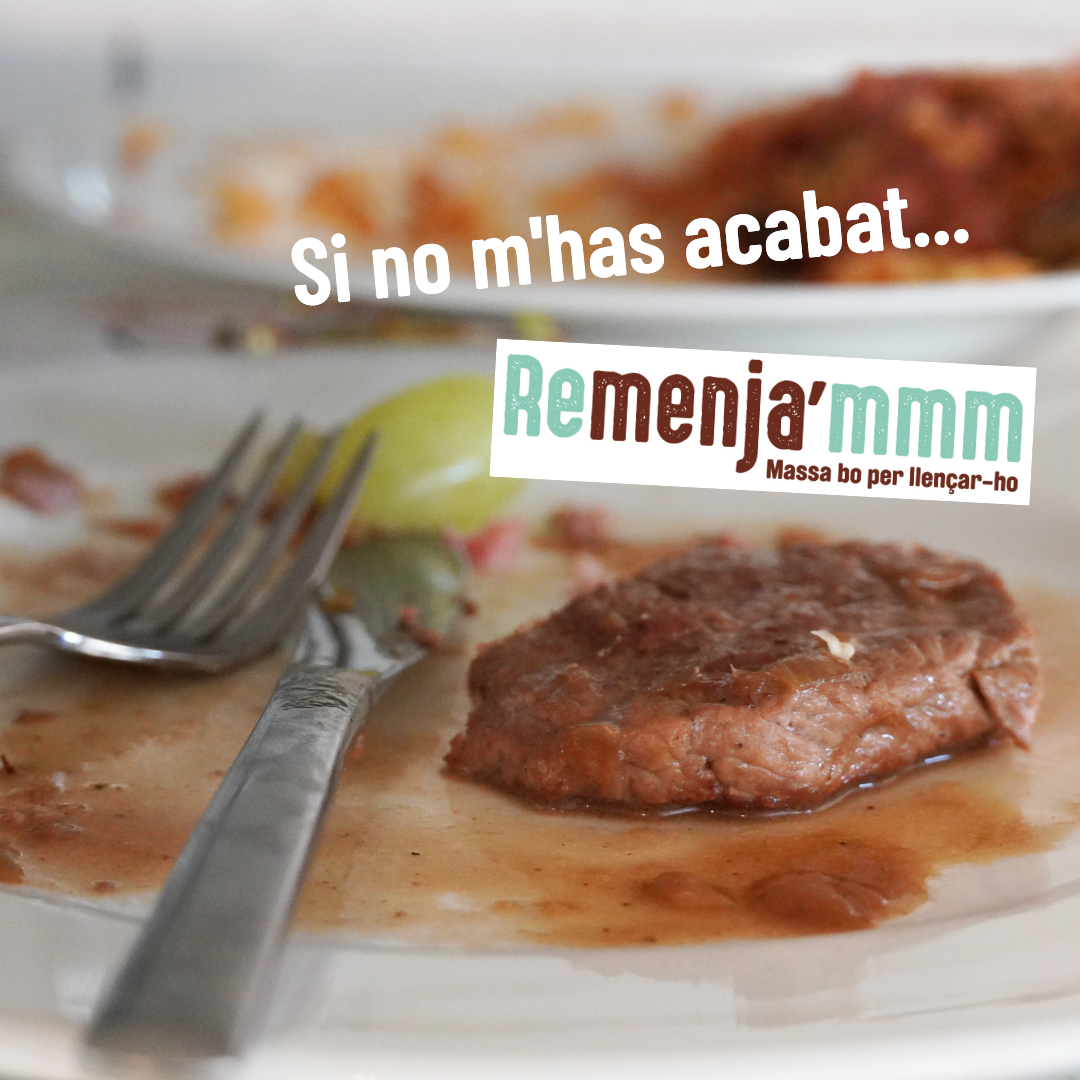
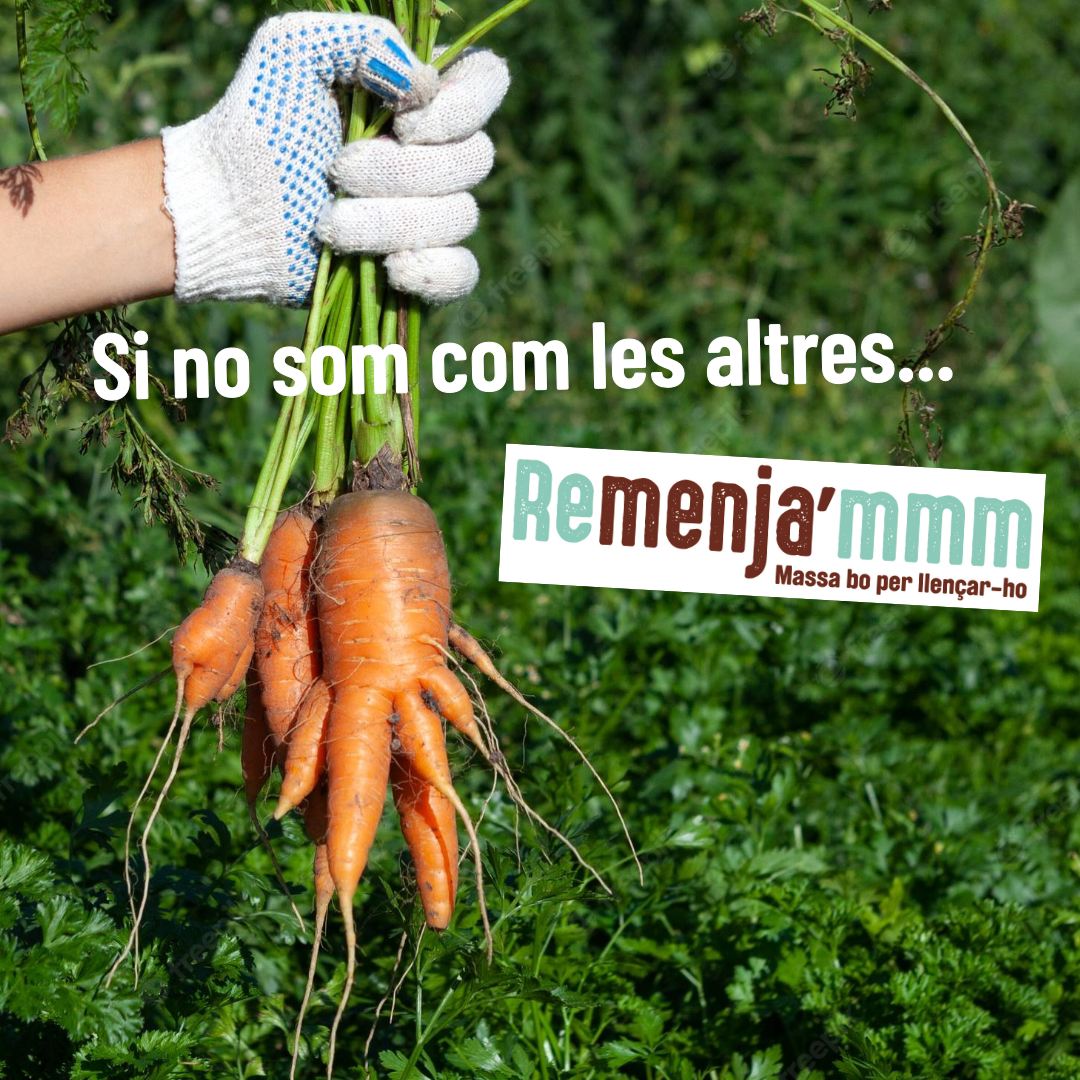
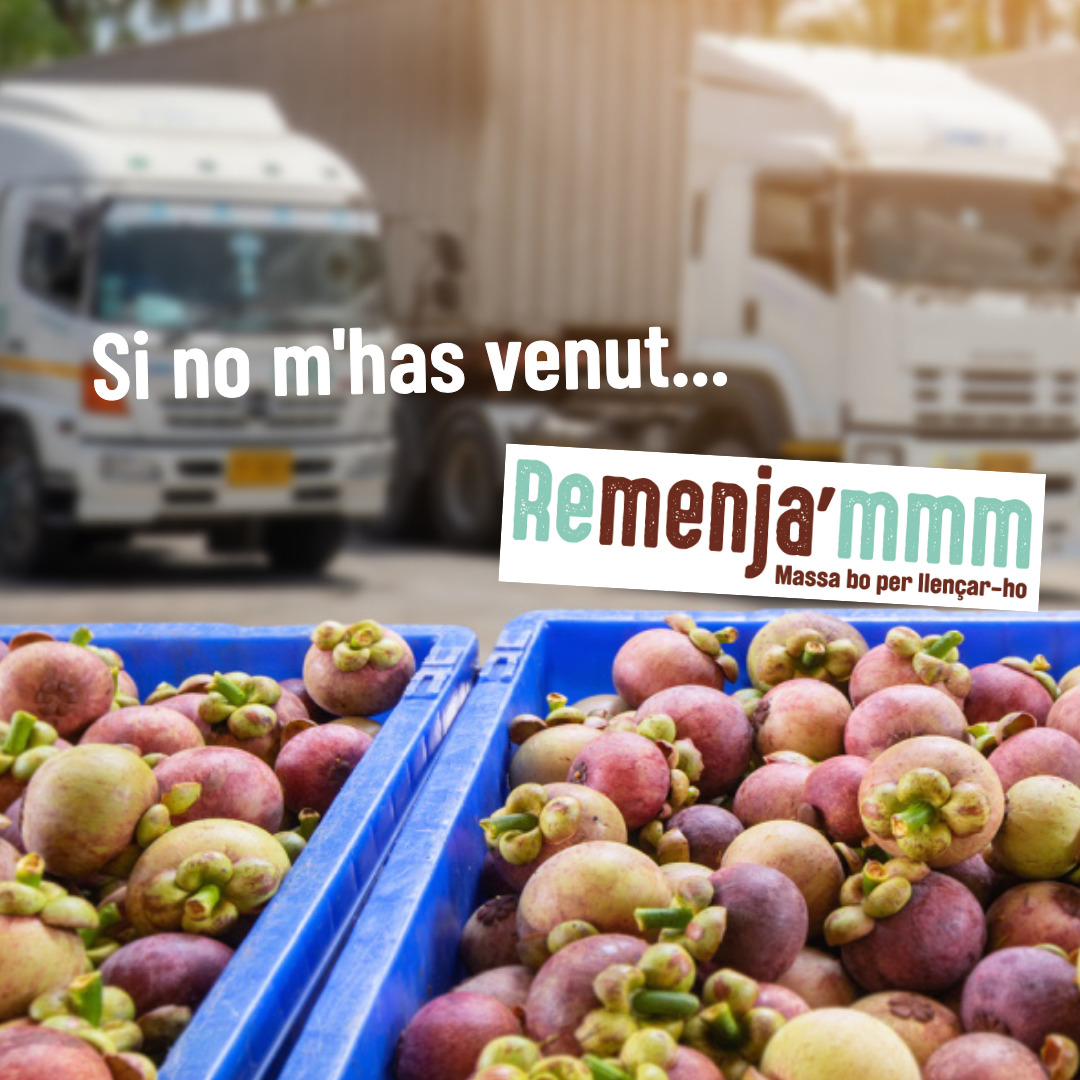
Remenja’mmm aims to contribute to achieving the objectives of reducing food waste by 50% and preventing waste that European legislation establishes for 2030.
Dus a terme bones pràctiques d’aprofitament alimentari al teu restaurant? Vols compartir-les amb nosaltres i optar al premi Remenja’mmm?
Entra al formulari i inscriu les teves dades. Tens temps fins el 31 d’agost de 2023

Remenja’mmm amb…
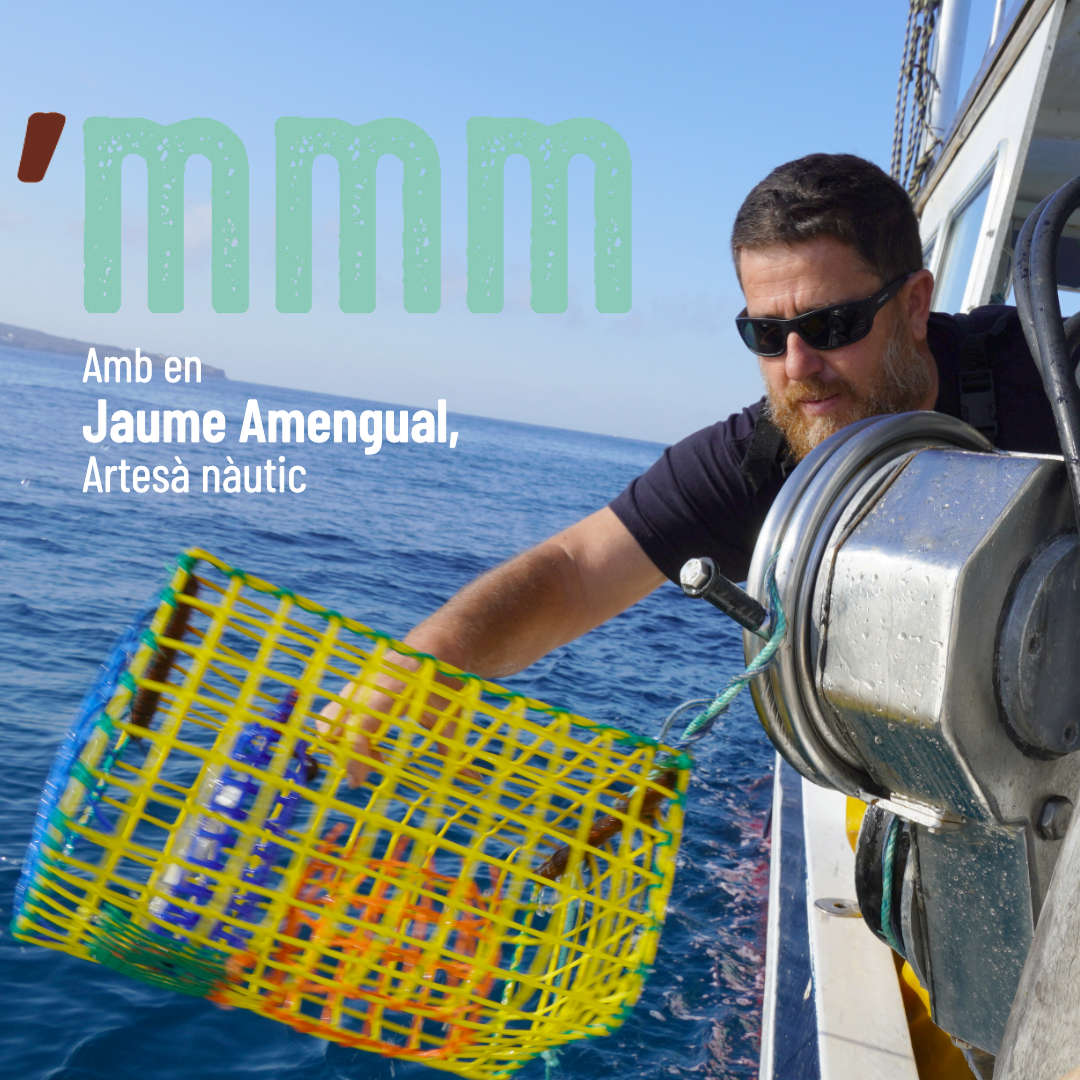
Jaume Amengual
Nautical craftsman
Is there waste in the sea? In the sea, the trawling boats have mechanisms that drag and do not know the fish that enters the bag. If they take 300kg of hock, for example, more than they can sell, a lot of waste is generated. We do artisan fishing, it is more selective, we only catch what we need.
Besides, the market is very capricious and myths are created, such as that the sardine from here is not as good as the Galician because it has less fat.
I give nautical courses to young people. When you ask them what fish they eat, they answer salmon, cod and hake. None of these three is from here. They don’t know a rap, a pàgara, a caproig. There is a lack of dissemination and awareness work about what we have here. The supermarkets have sold us the motorcycle, everything is sold on the back, people no longer want to find thorns. So we have the restaurants, a line should be opened so that people who have no resources could take what is lost.
Where do we start? There are spices that are not valued or eaten and there are no longer people who know how to cook them. If I make you a stew of moray eels, you’ll lick your fingers.
For a time we ate saupes, oblades, caproig, which now have zero commercial value. If you give me a choice, I prefer to eat an ase than other species that are discarded here. It would be necessary to start by learning to cook so as not to waste.
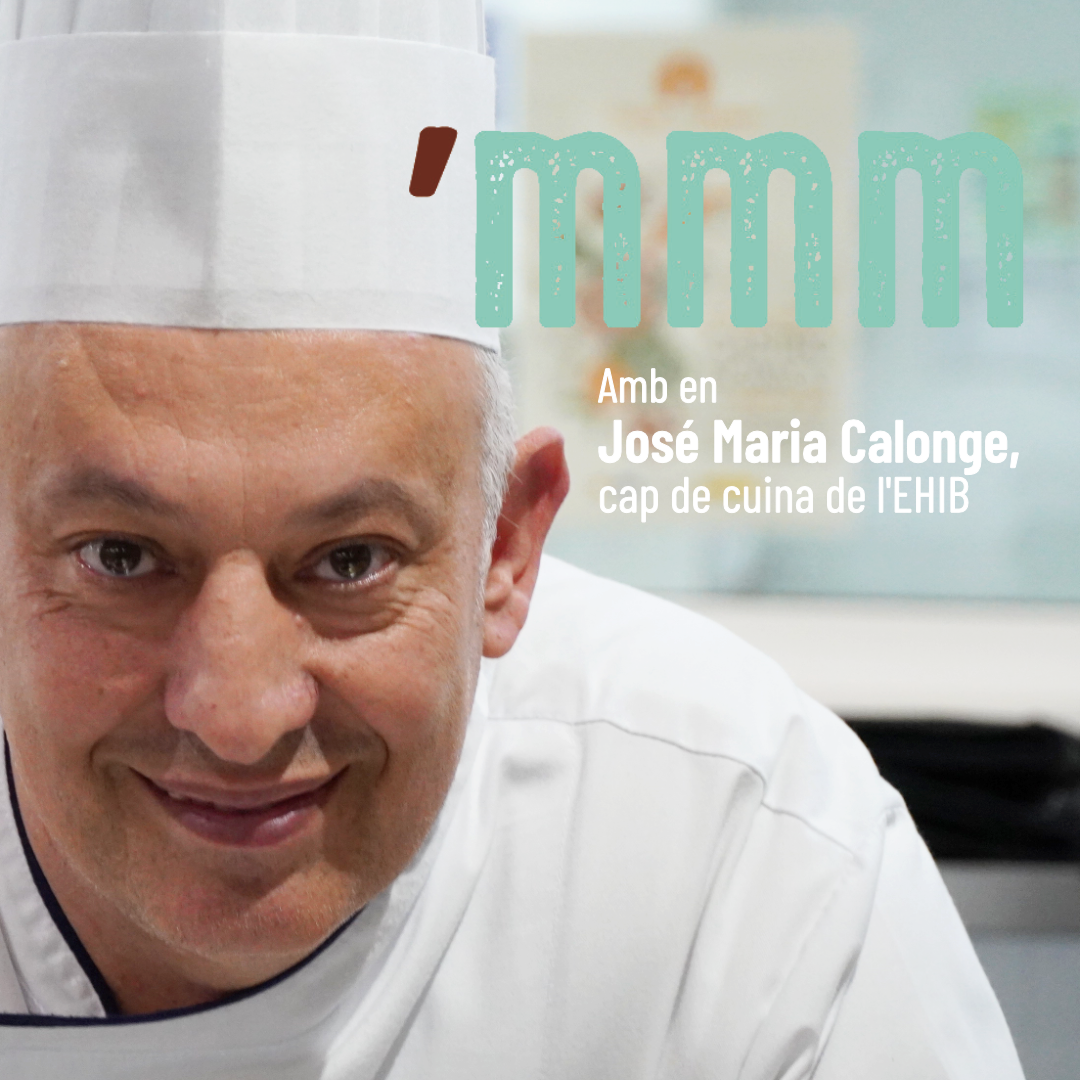
José Maria Calonge
Cooking cap of l’EHIB
One third of the food is lost. What’s going on? From my point of view it is a matter of education. We don’t care about food. Anyone is capable of leaving food on the plate without major repercussions. And I think it’s getting worse. I see my kids, who are young and don’t care, would eat anything 5th range before a traditionally cooked dish.
It is true that our students are more aware but with greater ignorance of things. They are not used to eating lettuce, because they don’t do it at home. They can’t tell a leek from a spring onion. And this means that the seasonal product is not used, they always eat the same thing. It exceeds in the production of this because the rest do not know.
Where do we start? I don’t really understand why there should be so many supermarkets. Before there was one and that was enough. The fact that we have so many points of sale forces us to have a large amount of production that ends up in the trash. My parents lived in a town in La Mancha and there were no sea bass, they were used to herring and cod, but not now. Now we must have everything everywhere. I live in Inca, before there were 5 establishments, now 25. In the morning they must all be stocked, but what happens at night?
Collaborated by:

Financed with the Sustainable Tourism Tax fund of the Balearic Islands